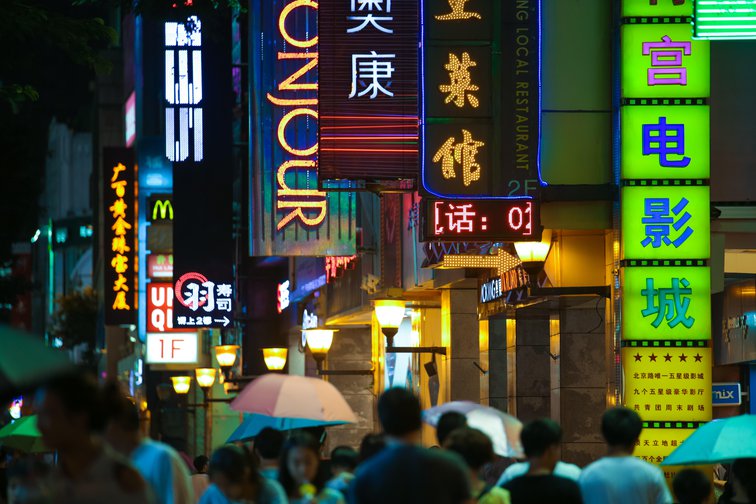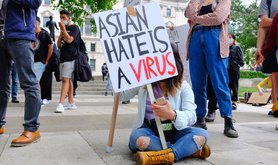With COVID-19 disrupting travel, shutting borders, and redefining what is essential work, Pandemic Borders explores what international migration will look like after the pandemic, in this series titled #MigrantFutures
In the past year, COVID-19 prevention measures have been imposed by most countries around the world – many of which have led to increased racial profiling. In the case of China, racism – particularly against Black people of African descent – has resurfaced with the pandemic.
In February 2020, when the virus was beginning to make its presence felt outside China, the Chinese government was unveiling new ‘green card’ regulations to attract more foreign workers. But the news quickly soured, as it ignited a racist and sexist outcry that has exposed the anti-Blackness of Chinese society.
China’s permanent residence permits are among the most difficult to obtain in the world – they are granted to only 1% of foreigners living in the country. The updated regulations allowed four categories of migrants to apply for the permits: investors, employees and students, people with urgently needed skills and expertise, and family members.
The last category, involving intimate relationships, led to an outpouring of racism on Weibo, the Chinese social media platform with 500 million users. Users claimed that “Chinese boys would protect Chinese girls” from migrants, particularly those from Africa.
The backlash on Weibo showcased the underlying racism towards Black people in China, who are often stigmatised with false claims of criminality or “contaminating” the “pure Chinese race” by having relationships with Chinese women.
As a young Chinese feminist woman, I was infuriated when I saw these anti-Black sentiments evolving into a trendy hashtag on Weibo. I thought, ‘Why the heck do you think I need your protection? At any feminist activity I attended in China, I rarely saw any heterosexual Chinese men. Now you are saying you are protecting Chinese women?’
I was utterly mad about this patronising manner of talking about Chinese women as vulnerable sexual victims while dehumanising Black people.







Comments
We encourage anyone to comment, please consult the oD commenting guidelines if you have any questions.